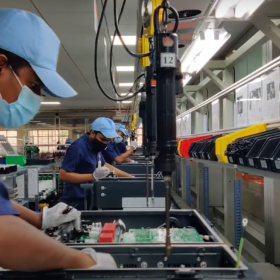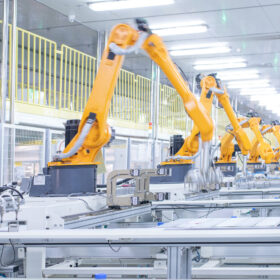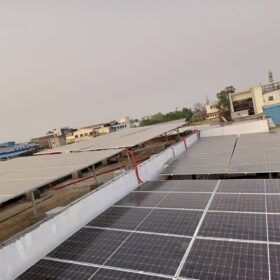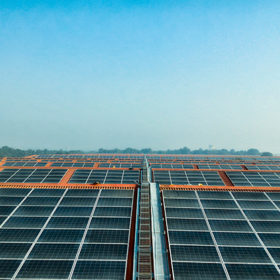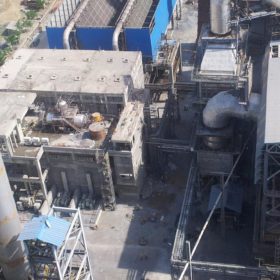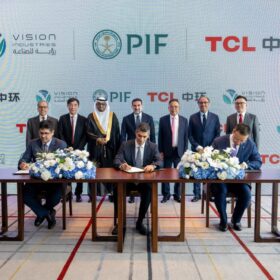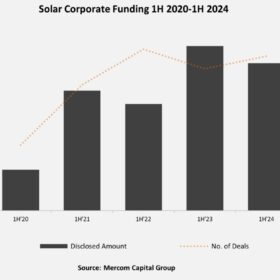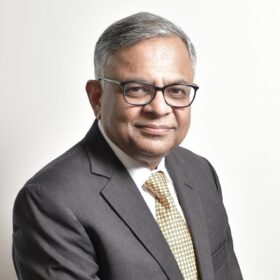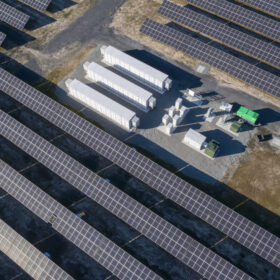Sungrow secures 850 MW inverter supply contract with Hero Future Energies
Sungrow will supply 1500V inverter solutions for Hero Future Energies’ multiple renewable energy projects located in India.
JinkoSolar-led group to build 10 GW solar cell, module factory in Saudi Arabia
A JinkoSolar-led consortium has announced plans to construct a 10 GW solar cell and module factory in Saudi Arabia with PIF and Vision Industries Company.
Freyr Energy aims to solarize 1,000+ homes in Uttar Pradesh by March 2025
Freyr Energy, a residential solar rooftop solutions company in India, aims to install rooftop solar on more than 1,000 homes in Uttar Pradesh by March 2025.
Tata Power Renewable Energy, NHPC partner for rooftop solar installation on government buildings
Tata Power Renewable Energy and NHPC have signed a memorandum of understanding for implementation of rooftop solar projects across government buildings under the PM Surya Ghar Yojana.
Ultratech Cement raises 26% stake in solar, hybrid RE plants for self-consumption
UltraTech Cement Ltd has acquired 26% equity stake in a special purpose vehicle formed to set up a 30.85 MW hybrid project with battery storage in Gujarat and a 3.54 MW solar project in Rajasthan and Odisha.
TCL Zhonghuan-led consortium plans 20 GW ingot, wafer factory in Saudi Arabia
A subsidiary of TCL Zhonghuan Renewable Energy has signed an agreement with Saudi Arabia’s Public Investment Fund (PIF) and Vision Industries to begin producing 20 GW of solar ingots and wafers per year in the country.
Solar corporate funding hits $16.6 billion in H1
Corporate funding in the solar sector reached $16.6 billion in the first half of this year, according to Mercom Capital Group. It says most funding came via debt financing, as venture capital and public market financing fell.
Tata Power to invest INR 20,000 crore capex in FY 2025
Tata Power chairman N Chandrasekaran announced that a large part of the investment will go in accelerating the company’s renewable energy portfolio. The balance will be used towards transmission and distribution businesses.
SECI concludes 1.2 GW/1.2 GWh solar, storage tender with average price of $0.041/kWh
Acme Solar Holdings, Hero Solar Energy, JSW Neo Energy and Pace Digitek Infra have emerged winners in Solar Energy Corp. of India’s tender for setting up 1.2 GW solar with 600 MW/1.2 GWh energy storage capacity.
Waaree Renewable secures EPC contract for ISMT’s 30 MWp solar project in Maharashtra
Waaree Renewable Technologies Ltd will provide comprehensive engineering, procurement, and construction (EPC) services for ISMT’s 22 MW AC (30 MWp DC) ground-mounted solar project in Maharashtra.
